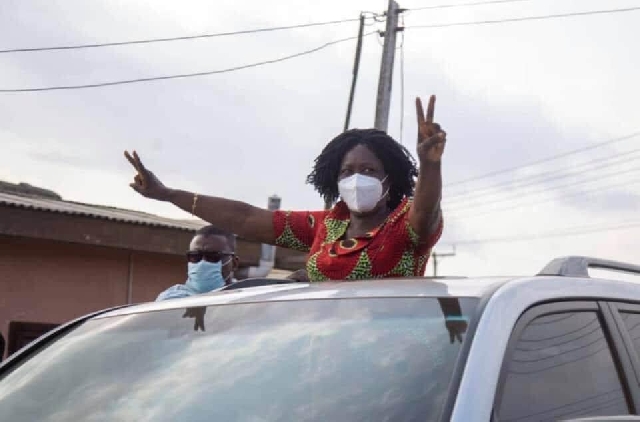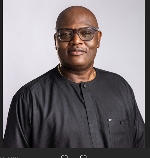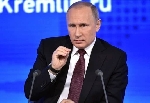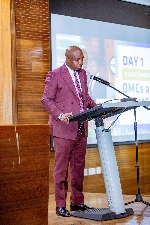Seidu Agongo writes: Ghanaian girls should have presidential role models, too
 Prof Jane Naana Opoku-Agyemang
Prof Jane Naana Opoku-Agyemang
What does a female President or Vice President mean to the girl child in Ghana? A lot.
First, it means the same thing that the male Presidents and Vice Presidents have meant and still mean to our boy children: a role model they can identify with through gender and physique, a source of hope and inspiration that they can also become top leaders when they work hard and are diligent, and a symbol of possibility that a dream to lead Ghana or any other organisation is not just a series of thoughts recurring in their sleep but something that can become real.
This is partly why the appointment of Prof. Naana Jane Opoku-Agyemang as running mate to the National Democratic Congress's (NDC) Flagbearer, Mr John Dramani Mahama, for the 7 December 2020 polls, should mean more than just another historic feat in our democracy and human capital development journey.
Despite our unparalleled feats in the area of democracy and sociopolitical stability in the sub-region and the continent at large, Ghana is yet to break the proverbial glass ceiling that will allow a woman to occupy the highest or the second-highest position of the land – the President or the Vice President of the Republic of Ghana.
Even until her selection this year, the most basic of the requirements to becoming a President or a Vice President, which is by merely attempting to occupy that seat, had not been potently made by the female gender in our dear country.
The female presidential or vice presidential candidates before her were and are either from parties that had (have) never won political power and/or had (have) failed to make their way onto the ballot box since the return to democracy in 1992.
This is not good for gender equality and equity, the two words that may mean less in theory but everything in reality.
From research to practice, it is abundantly clear that having more women leaders at the top of political decision-making increases the number of women participation in politics and nation-building.
It also enables more inclusive decisions from the top, something that is needed to help bridge the economic gap and other sources of disparities between the male and the female gender; the north and the south; and the haves and the have-nots in the country.
Also, many feminist theorists argue forcefully, and rightfully so, that having more women in leadership reduces the possibility of political wrangling, witch-hunting and human rights abuse in a society.
Given the acidic and vengeful nature of our sociopolitical environment currently, and the implications on the economy, there's no gainsaying that the country needs that stabiliser of a woman leader now than ever.
It will not only refocus our energies at where they are needed most – reducing child mortality, ensuring safe pregnancy and delivery, eliminating childhood killer diseases, finding decent shelters and jobs for the aged and the young respectfully, and generally equalising opportunities for all. It will also help douse the unnecessarily hot temperatures in our politics.
The case for a female President or a Vice President is even more forceful in Ghana now.
With democracy referring basically to a rule of the people, by the people and for the people, one wonders why a nation that has more females than males will allow the minority gender to continue to lead.
How democratic can we claim to be when we have failed to allow the gender equation, which is as important in the numbers as it is in catalysing development, to manifest at the apex of political leadership for almost three decades?
What is even more disturbing is the abundance of talent and leadership qualities in the female gender compared to the domineering male gender.
The findings of a study published in the Harvard Business Review (HBR) on June 25, 2019, showed that women possessed and exhibited better leadership qualities than their male counterparts.
The study said women were rated as excelling in taking initiative, acting with resilience, practising self-development, driving for results, and displaying high integrity and honesty.
"In fact, they were thought to be more effective in 84 per cent of the competencies that we most frequently measure."
Here in Ghana, women talents abound, with Prof. Opoku-Agyemang (with her impeccable records as a lecturer, first Vice Chancellor of the University of Cape Coast and Minister of Education) being one of them.
Because of years of sustained positive activism, the creation of equal opportunities and the deliberate, albeit insufficient empowerment of females, the country is blessed with a variety of female talents that can make great presidents and vice presidents when given the support that their male counterparts have been getting all this while.
What we now need is a psychological reorientation that will open our eyes to the many benefits there are in having a woman president or a vice president.
We have done well by having a female Chief Justice on two occasions and a Speaker of Parliament on one occasion. But, is that all that there is for the female gender to contribute to development?
While Prof. Opoku-Agyemang's appointment as a running mate may be unprecedented, it has been long in coming and the country must now fight together to actualise its gains.
At a time when women representation in decision-making is rising, as evidenced by reports from the United Nations and the World Bank Group, Ghana has another opportunity to emerge as a great contributor to equality through a female Vice President.
As she herself has said somewhere before, what matters is not being the first to walk through the door.
What matters is leaving that door open for many others to pass through.
Unfortunately, we cannot have our girl children walk through an attempt-to-open door. They can only walk through an opened door; one, whose opening means more than just an opportunity for gender equality and women empowerment.
Quote
How democratic can we claim to be when we have failed to allow the gender equation, which is as important in the numbers as it is in catalysing development, to manifest at the apex of political leadership for almost three decades?
The author is a businessman and philanthropist, with special interest in women, children and the underprivileged. He's the founder of the collapsed Heritage Bank Ghana Limited.
Email address: [email protected]
Source: classfmonline.com
Trending Features

A vindicated Zoomlion?
03:12
Oti Region: Ghana’s emerging growth frontier
20:17
Russia’s stance: “For freedom of nations”
10:02
NPA’s regulatory drive strengthens under Edudzi Kudzo Tameklo in eleven months
09:23
Amid record funding, critical gaps loom over Ghana’s 2026 health budget
15:21
Is the Special Prosecutor independent?
00:57
Africa’s Bold Stand: Mali’s victory and Ghana’s resolve should be the blueprint
13:50




